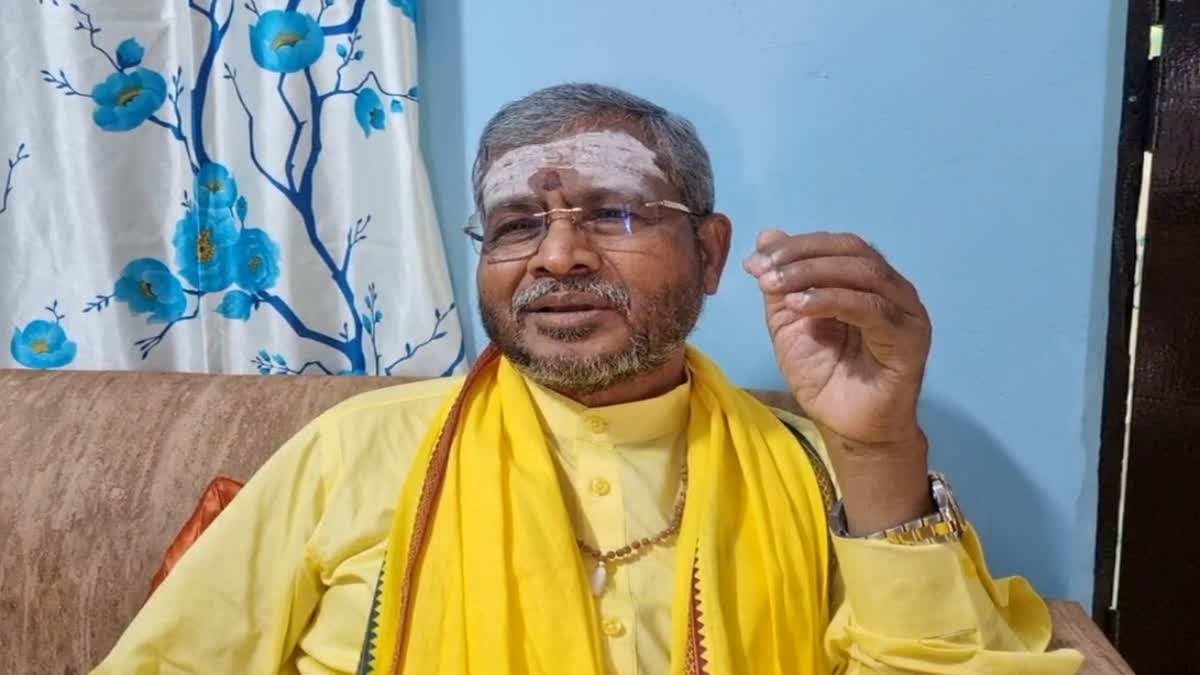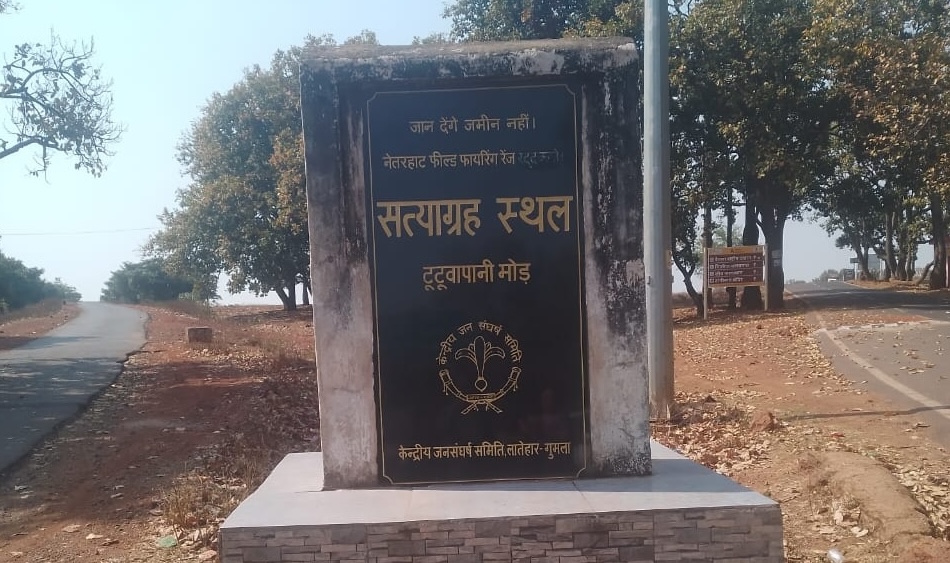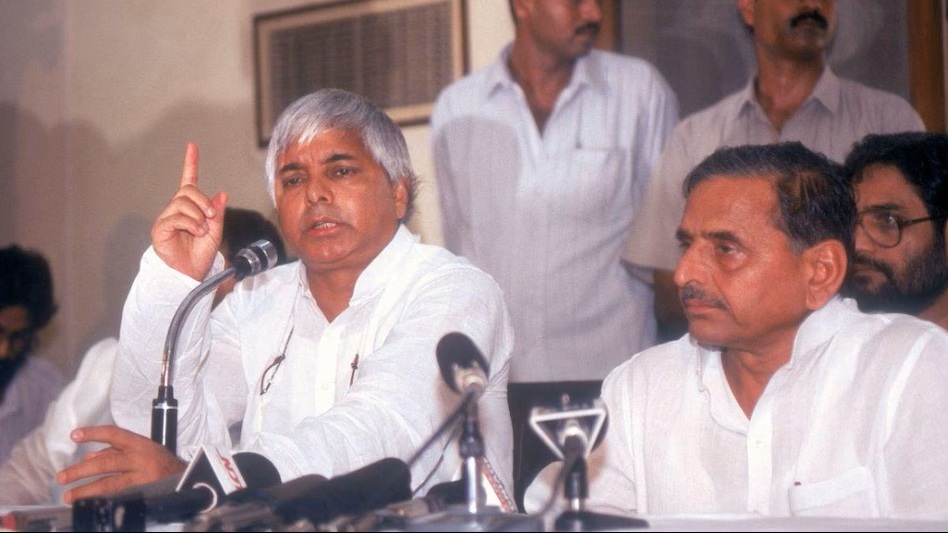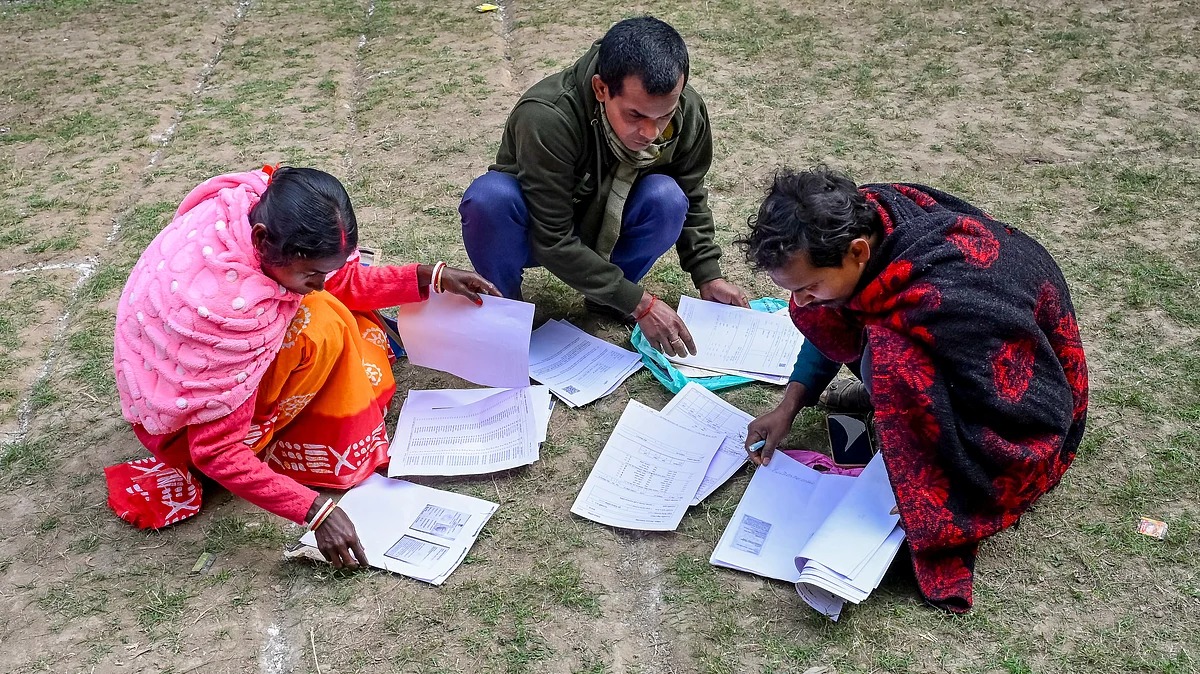Mukesh Malod, who hails from Punjab’s Ludhiana district, is the president of the Zameen Prapti Sangharsh Committee (ZPSC). The organization has been fighting for the rights of the landless Dalit and farm labourers in the Sangrur district of Punjab. Against the backdrop of the ongoing farmers’ protest, Malod spoke with FORWARD Press. This is a lightly edited version of the interview:
For years you have been fighting against large farmers and for the right of Dalits to till land owned by the government (Nazul and Panchayati lands). Now, you are backing the large farmers agitating against the government and demanding fulfilment of their demands. Why so?
You see, there is a law that reserves land for the Dalits. This reserved land is one third of the Panchayati land. This land is allotted through auction and what happens is that on paper it goes to the Dalits but actually they never get possession of it. We launched a struggle demanding that the actual possession of land go to those for whom it is reserved. Another issue was when this land was auctioned, the large farmers naturally offered higher bids. The Dalits could not match them. So, our first struggle was to demand that reserved land be priced as low as possible so that the Dalits can afford it. But the government wants to increase the reserve price of the land. It brought a law saying that the reserve price would go up every year. That led to a confrontation. In villages, Dalits are not landowners. So their women had to graze their cows, buffaloes, etc in the land of others. Their women would be abused and subjected to sexual exploitation. So, these were the issues on which our struggle was focused.
But now you have put all these issues aside and joined large farmers in their battle against the government. Why?
The large farmers usurped the land reserved for the Dalits. They also made Dalits do ‘begaar’ (unpaid labour) for them. For instance, if a large farmer owns 10 buffaloes and a Dalit owns one, in return for being allowed to cut fodder for his buffalo from his land, the Dalit had to cut fodder for his 10 buffaloes and haul it to his house. Thus, free labour was available to the large farmers, who were now worried that if these people (Dalits) got land, they would no longer work for them. Thus the large farmers and the government both did not want the Dalits to get land. That was why our struggle was against the large farmers as well as the government and its officers.
But now you are fighting shoulder to shoulder with the very same farmers against the central government.
As far as the Delhi agitations go – whether the earlier one against the three farm laws or this one – I think two or three things are important for us. First, that the Modi government is attacking the people as part of its fascist agenda. One by one it is targeting all sections of society. So, everyone needs to come together to fight it. That was why we backed the earlier agitation and whenever the Samyukta Kisan Morcha (SKM) gave a call, we extended our support to it. Second, we were certain that the three farm laws would have impacted not only the farmers but the entire country. The labourers would have been hit, for if mandis were disbanded, the labourers working there would have lost their work. There are those who sell tea or juice at mandis, those who load and unload sacks of produce. So, lakhs of people work in the mandis. All of them would have become jobless if mandis were done away with. Then, in the name of contract farming, some people want to consolidate land. We have been demanding implementation of the Punjab Land Ceiling Act 1972 under which no family can own more than 17.5 acres of land. We are fighting for that. But if the contract-farming law is enacted, a handful of people will become owners of thousands of acres. The large farmers would also lose their land. The Dalits and the landless would be left with nothing to fight for. Finally, it would affect the law on essential commodities. So, we felt that it was not a battle of the farmers alone, it was our battle, too.
The agricultural model that came with the Green Revolution pushed a large number labourers out of the farms. Now, if farming is done on a mega scale, as the corporates want, labourers will be completely out. At present, labourers can find at least some work in the farms. There are women who pick vegetables. Some spray fertilizers or insecticides in the fields. All these jobs will disappear. So, we had joined the farmers in the earlier movement and we still believe that we have to fight unitedly. That is why we are again standing with the farmers.
By essential commodities, do you mean the ration provided to the poor under the Public Distribution System (PDS)? Also, how is the demand of the farmers for guaranteed minimum support price (MSP) in the interest of the Dalits and the labourers?
Let us talk about the MSP demand first. Let us look at the rates of vegetables. Take garlic, whose price in the market is upwards of Rs 200 per kg. The crop is purchased from the farmers for Rs 5-10 per kg. Now, if there is an MSP, this discrepancy would be addressed. And it is not only about MSP. We want the government to purchase the produce and private players to be taken out of the market. If there is government control, onions bought from farmers for Rs 20 per kg will sell for Rs 25-30 per kg in the market. It will control black marketing. If there is no government control, the onions for which the farmers are not getting a fair price will be sold for Rs 150 per kg to labourers. So, if someone says that MSP will make no difference to labourers, they are wrong. It will make a difference. That’s why we believe that the government should control the produce market.

Some other ways of implementing MSP are being suggested. Like, the difference between the MSP and the market price can be credited to the bank accounts of the farmers. Or, that the government can purchase as much of the produce as is enough to bring the market price to the level of the MSP. Your take?
See, only a law on MSP wouldn’t do much. For instance, our Punjab government asked the farmers to grow dal assuring them that it would buy the crop. But the dal remained dumped in the mandis. MSP was announced for corn but there were no buyers. So, only MSP won’t do. The key is government control. The government should control the markets instead of handing them over to private players or corporates. This will benefit both the farmers as well as the consumers.
You just talked about lentil – that the state government asked the farmers to grow lentil and said they would pay MSP. What does this mean?
They told the farmers, ‘You cultivate moong and we will purchase it.’ But no one purchased it. The growers were ruined.
If, as you say, everything is placed under government control, what difference will it make?
If it is under government control, I think the benefits will accrue to all. In the case of dal, the government had not guaranteed purchase. It had only said that they would fix an MSP.
We are told that the Dalits, who form more than 30 per cent of Punjab’s population, own just two per cent of the agricultural land. Do Dalits see their future in farming? Or would they prefer some other sector?
Even today, as compared with other sectors, Dalits have a greater association with the farm sector. You are right. Dalits are almost 35 per cent of the state’s population but they own less than two per cent of the land. We are fighting on this issue. We want the Land Ceiling Act 1972 amended. When this law was enacted, productivity was low and keeping that in mind, the area that could be owned by a person was capped at 17.5 acres. Now, the productivity is much higher and so we are demanding that the ceiling be lowered to 10 acres and that the land that would be released as a result be distributed among the landless and the Dalits. We held a demonstration on this issue today. We have been agitating consistently with this demand. The 2007 report of the Planning Commission also says that this [land holdings exceeding ceiling] is a big stumbling block in the nation’s progress and that if the landless get land, the country will progress.
During the Covid-19 pandemic we saw that those who owned land managed to survive with comparative ease while others had to sustain massive losses. So, the land ceiling law should be implemented. That will make Dalits owners of land. We had conducted a survey, though it covered only a few villages. We found that only a few people owned land. Some had 100 acres, others had 150 acres. Top politicians from the state openly boast to the media about the land they own. For instance, [Akali Dal leader and former deputy chief minister] Sukhbir Singh Badal said in an interview that he cultivated 2,500 acres of land. The government should ask him that when the law says no one can have more than 17.5 acres of land, how is he in possession of 2,500 acres!
Is what the commentators from outside Punjab, policymakers or politicians are saying about the farmers’ movement in sync with the socio-economic ground realities?
You see, the Punjab government recently held a dialogue with some farmers’ organizations. The government said that it wanted to make changes in the agricultural model and invited suggestions from the farmers. The farmers gave their suggestions. But when it came to taking a decision, the government relied on the advice of a multinational company. Doesn’t this mean that the government gives less importance to the farmers, that it thinks that they are inferior?
If you see the topography of Punjab, there is one part with ample water. The land there is swampy and water is available above the surface. Then, there is another part which has no water at all. If the government wants, it can implement a new agricultural model taking all these facts into account. There is no other way out. Over the next 5-10 years, the situation will take a turn for the worse in parts where there is less water. Punjab means “land of five rivers”. And if water is not available in the land of rivers, you can just imagine the irony.
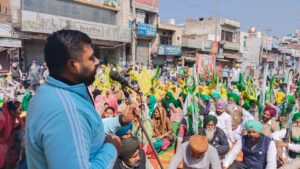
How has the last farmers’ movement changed the relations between big farmers and labourers?
These relations are related to caste and one movement won’t make much difference. You see, we frankly, openly say that we will have to fight on the issue of caste in society. If labourers become owners of land, it will bring about economic equality. At the same time, at the social level, inter-caste marriages and other practices would lead to cultural changes. That is how the issue of caste can be resolved. If someone says that the farmers and the labourers have become very close after the Delhi movement, that is not true. Yes, there was some camaraderie till the movement lasted. Slogans hailing the unity of the farmers and the labourers were raised from the dais. But after the success of the movement, this slogan disappeared. That is the truth. The struggle for equality is a different one and that too needs to be waged. There is no solution without it.
Don’t you think the last farmers’ movement has made things a bit easier for the movement for equality?
If any agitation gets such massive support, it does make things easier. The farmers’ movement succeeded because all sections of the people backed it. The central government uses religion and caste to divide people and to fulfil its agenda. So, what we are trying to do is to defeat this plan as far as we can. The Dalits were repeatedly told that the new farm laws were great and that the farmers, as a class, were their enemies. But that is not true. Many organizations of the farmers have supported protests by the labourers. It is not fair to paint everyone in the same colour. Some people who are agents of the RSS [Rashtriya Swayamsevak Sangh] are perpetually busy dividing the people. At the same time, there are others who are trying to bring the people together, trying to unite the organizations of the farmers and of the labourers.
Coming back to the ongoing farmers’ protests, what kind of dialogue have you had with the government?
The talks have been far from comprehensive. The government offered MSP on some crops for a period of five years. They also talked of bringing an ordinance. But the farmers’ bodies were not convinced. Another point is that this is not happening on the call of the Samyukta Kisan Morcha (SKM). Those who are part of the negotiations are not part of SKM. So, what some people say doesn’t matter. Everyone has faith in SKM. Of course, if there is oppression anywhere, all speak up against the government. The movement has not ended yet. It has just begun. Let us see what happens in the days to come.
(Translated from the original Hindi by Amrish Herdenia)

